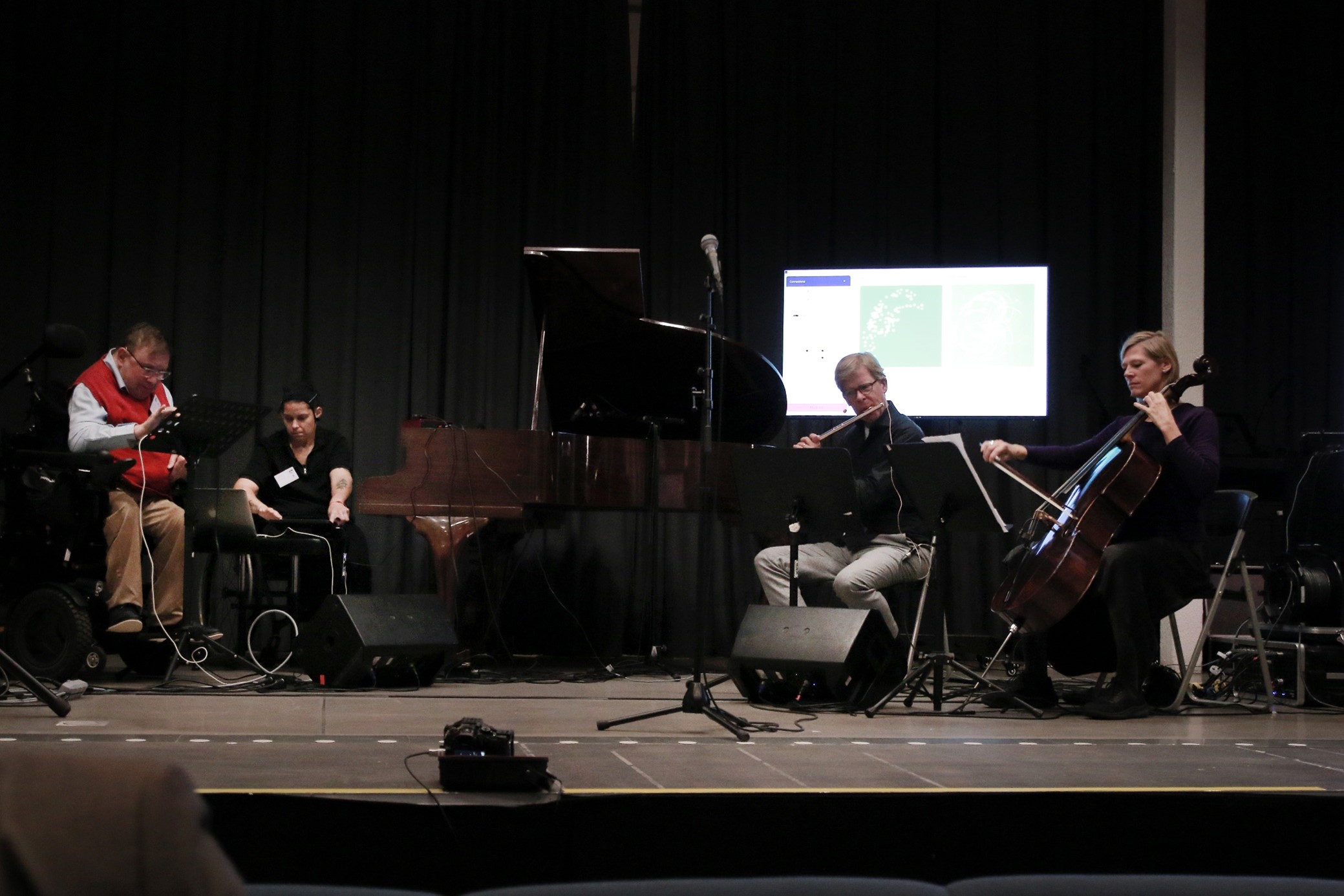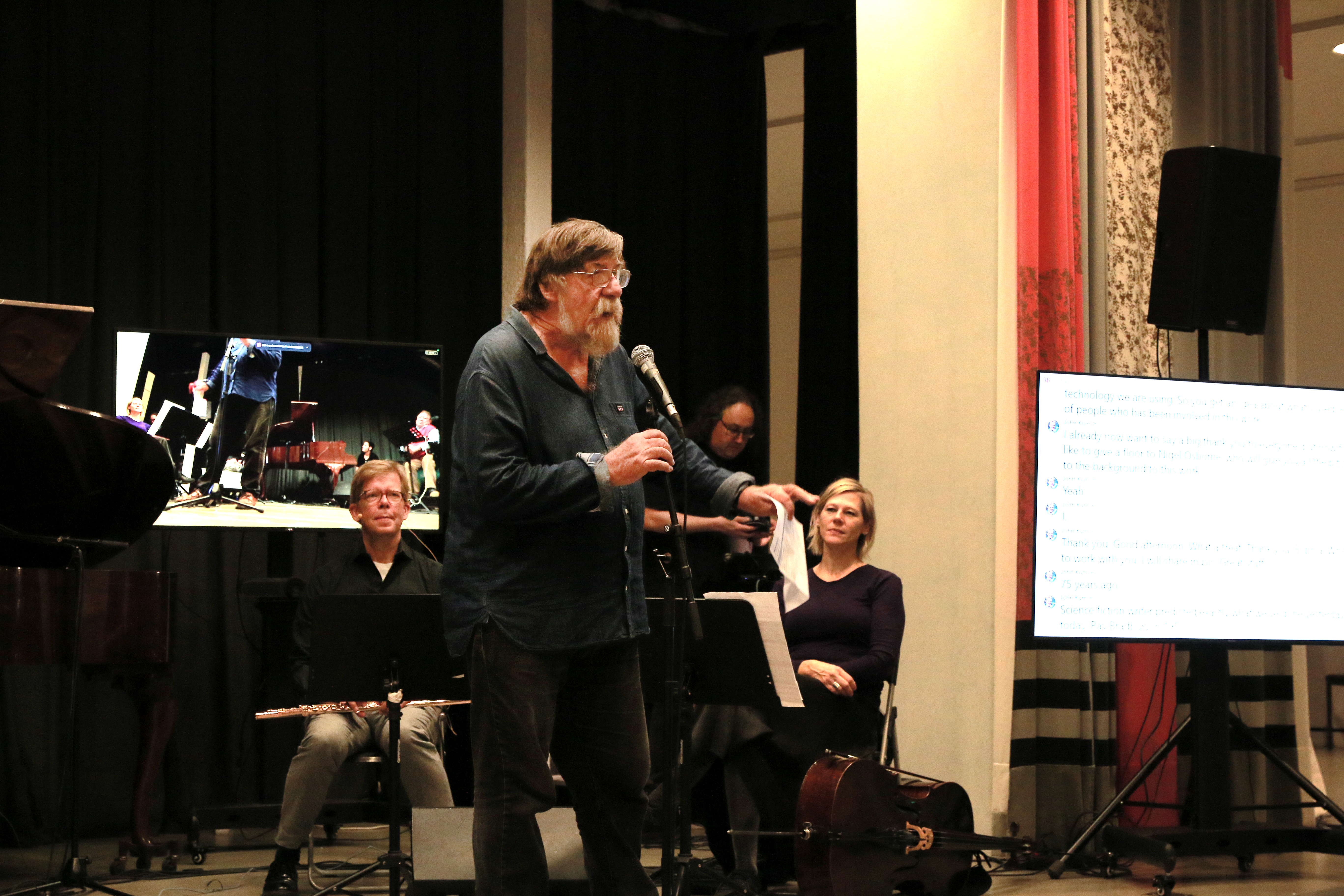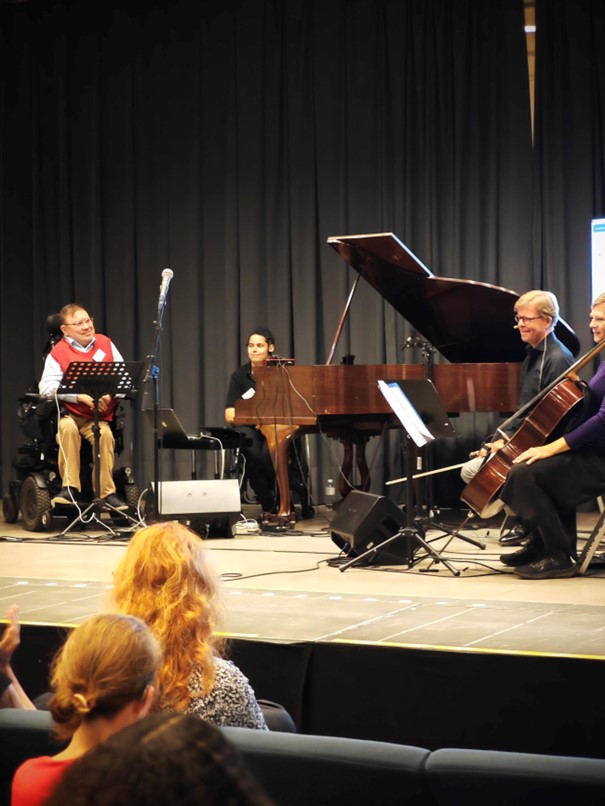
The MuseIT project is approaching its conclusion, and in September the final event took place in Borås and Gothenburg. Over the course of nearly three years, the project has developed new methods and tools to make culture more accessible, inclusive and multisensory. At the final event, the public had a unique opportunity to experience the results first-hand.
A central part of the project has been to explore multimodality – how different senses can interact to create richer and more accessible cultural experiences. Through multisensory representations of, for example, artworks or music, it becomes possible to experience culture not only through sight and hearing, but also through touch and other senses. MuseIT has therefore also contributed to new ways of preserving and communicating cultural heritage in inclusive formats.
ShareMusic’s role in the MuseIT project has focused on cultural co-creation. We have worked on developing a Remote Performance Platform that enables musical co-creation across distance. We have also been involved in other parts of the project, not least in the creation of an accessible repository for cultural assets. Our Knowledge Bank can be found here.

Professor Nigel Osborne, Chair of ShareMusic’s Academic Council and a key figure in the project, put it this way:
"Through MuseIT, we have been able to explore how new technology not only makes remote music creation possible, but also how cultural heritage can be passed on in new and more inclusive ways."
On the first day of the event, held at the University of Borås, researchers and project partners presented the innovations that had been developed – ranging from digital interfaces and haptic solutions to immersive cultural experiences. Visitors had the chance to try out installations that combined art, technology and accessibility in new ways.

Day two took place at the Röhsska Museum in Gothenburg, in a festive setting filled with discussions, policy exchanges and artistic contributions. The programme included a policy session with international experts who discussed MuseIT’s policy briefs and future pathways for accessible culture. Among the panel participants was Emil Erdtman, researcher and board member of ShareMusic, who contributed valuable perspectives on disability rights and universal design.
The programme also featured an inclusive concert with musicians from ShareMusic and Gageego!, where the technologies came to life and the Remote Performance Platform was demonstrated. The platform showed how technology can enable new forms of musical collaboration and inclusion. Here, the musicians performed remotely with one another, using brainwaves, heartbeats and facial expressions as part of the music-making process.
Ewe Larsson from Elefantöra shared his reflections on the MuseIT project and its conclusion:
"I have learnt an incredible amount during this process – both as a musician and about myself. I have practised listening in several places at once, dealing with situations where the technology did not always work, and finding my own calm when things did not go as planned. It has been challenging but also very rewarding, and I am deeply grateful for the opportunity to take part."
The event became a vivid illustration of MuseIT’s vision: that culture should be something everyone can access, experience and help to shape.